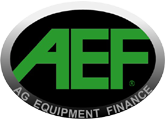Harvest is upon us once again. Depending on where you are and what you grow, you could already be in the field. For everyone else, the combines are sitting at the ready, waiting to get into the fields.
the combines are sitting at the ready, waiting to get into the fields.
Before you jump back in the cab, though, consider this, according to Dick Nicolai, a South Dakota Cooperative Extension farm machinery & safety specialist, combine and tractor fires not only cause 40-50 serious injuries each year, they also cost more than $20 million in property losses, not to mention the additional cost of lost time.
Take these steps to prevent a combine fire.
Electrical Igniters
Keep wiring and fuses in proper working condition.
Properly route and insulate all replacement wires.
Use heat-resistant insulation.
Check wiring and insulation for rodent damage and replace if necessary.
If you can, take your combine to your local dealership to have it thoroughly inspected.
Fuel and Mechanical Igniters
Keep fuel lines in good condition with tight connections.
Don’t fuel-up near an open flame, while smoking or while the engine is running.
Clean up oil and fuel spills immediately.
Check lubricant levels often.
Grease those fittings!
Pay close attention to bearings. Overheated bearings are a major cause of combine fires.
Check for leaks and get them fixed, heat plus flammable liquid equals a bad day in the field.
Pay close attention to the exhaust system. This puts out a lot of heat and can catch fire easily if not maintained.
Check for:
Leaks
Damage
Residue build up
Loose or cracked pipes, ports
Check the manifold
Chaff and Trash Igniters
Use a pressure washer or air blowgun to clean out the chaff and trash.
Check the machine for chaff and trash build up before each use.
Put out small fires immediately.
Attach a ground chain to prevent static charges from sparking and possibly igniting any chaff or harvest trash while in the field. You can attach a chain to the frame of your combine with a bolt and hang it up while driving down the road, then let the chain drag on the ground while in the field.
Safety First
Always have at least one (if not two, one near the cab and one near the ground) fully charged 10-lb. ABC fire extinguisher on hand.
Visually check your extinguishers monthly, check for signs of damage, cracks in the hose and check the gauges to make sure they are charged.
Have fire extinguishers checked annually by a certified professional.
CALL 911 FIRST if a fire breaks out, then attempt to extinguish it. Pull the pin, aim the nozzle, squeeze the handle and sweep from side to side. Remember P.A.S.S.—Pull, Aim, Squeeze, Sweep.
Combines might be considered rolling fire hazards, but they don’t have to be. With proper maintenance and by keeping alert, you can prevent most combine fires by eliminating their fuel sources.
Keep in mind; most combine fires occur at the end of the season, which leads researchers to believe human error due to exhaustion from a long harvest season is to blame. Diligence is key. Don’t let your guard down and stay safe throughout the harvest season.
Article via AGWEB.com

